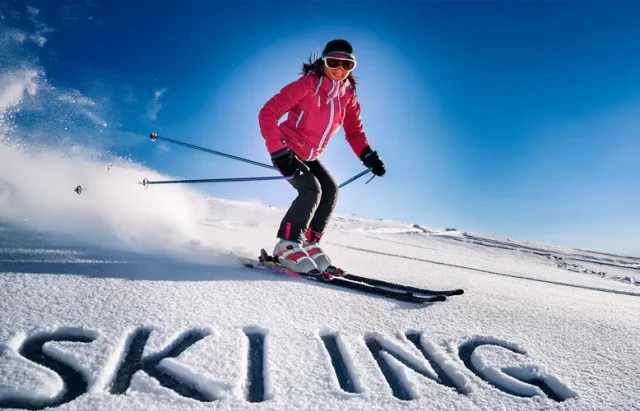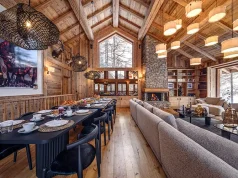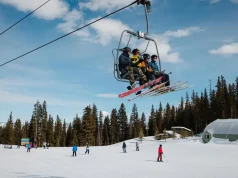
Wellness travel has consistently been one of the fastest-growing sectors in the wellness economy, and cold immersion holidays are the new frontier in it, offering an experience that’s far from ordinary.
From plunging into frozen lakes to meditating in snow-covered valleys, these aren’t your typical spa retreats—instead, they invite you to embrace the cold, both literally and figuratively, combining ancient practices with contemporary techniques like ice baths, cryotherapy, and wild winter swimming.
Gary Clark, an Academy Director at SIA Austria, a provider of gap year ski instructor courses, says: “It’s fascinating how more people are choosing cold immersion holidays over traditional getaways. I think it’s about craving something deeper—an experience that challenges both body and mind. These trips aren’t just about relaxation – they’re about growth, resilience, and stepping outside comfort zones to find a sense of renewal.”
In this article, we’ll look at what makes people willingly step into icy waters, the health benefits of such practices, and some of the best destinations for your next cold immersion holiday.
The science of the chill
So why would anyone voluntarily jump into icy waters? For some, it’s the physical benefits—improved immunity, better sleep, and reduced stress. For others, it’s the mental edge. Stepping into icy water is an act of courage. It forces you to focus, to breathe deeply, and to remain calm under pressure. That sense of achievement can ripple out into other areas of life, making everyday challenges seem more manageable.
And the science behind it is both fascinating and persuasive. Athletes have long used ice baths to aid recovery, but recent studies suggest the benefits extend far beyond physical performance. Short-term exposure to very cold temperatures helps stimulate vagus nerve pathways – it reduces the body’s natural stress response, and regular exposure to cold can help regulate mood and reduce anxiety.
The rise of cold immersion holidays
More and more travellers today are looking for adventures that push their boundaries while also benefiting their health. Cold immersion holidays offer just that.
Take, for example, Finland’s lakeside saunas. These retreats invite guests to enjoy a unique experience by switching between hot sauna sessions and quick dips in icy lakes. The sudden change in temperature is refreshing and brings a strong feeling of relaxation and calmness.
Or, swimming in Canada. With its vast expanse of pristine lakes and rivers, the country has become a hotspot for winter swimmers, with spots like Lake Louise in Alberta offering guided experiences where participants learn the art of controlled breathing to manage the shock of icy water.
Top destinations for a cold escape
If the idea of a cold immersion holiday excites you, here are some destinations making waves (sometimes literally) in this niche wellness scene:
Canada
Canada’s rugged landscapes make it an ideal choice for cold therapy. Beyond wild swimming, visitors can try cryotherapy chambers or ice climbing in British Columbia. Plus, ski resorts in Whistler and Banff often offer spa packages that include cold-water immersion, making it easy for those taking ski instructor courses to combine skiing with wellness.
Iceland
Known for its geothermal pools, Iceland also offers opportunities for cold water immersion. Many wellness retreats pair ice baths with dips in hot springs for a dual healing experience. The iconic Silfra Fissure even allows snorkelling between tectonic plates in icy waters.
Austria
The Austrian Alps have embraced the cold immersion trend with alpine retreats that focus on snow yoga, meditation, and guided ice walks. Ski enthusiasts can combine these activities with their favourite winter sport, making it a holistic holiday.
Norway
With its long-standing tradition of winter swimming, Norway’s fjords provide the perfect backdrop for cold exposure. Some retreats even include sessions on the mental aspects of enduring icy conditions, inspired by polar explorers.
Japan
Misogi, a Shinto purification ritual involving cold water, is still practised today. Some Japanese retreats offer this alongside modern wellness practices, blending ancient traditions with contemporary health insights.
Conclusion
Cold immersion holidays are more than just a fleeting trend. They’re a call to reconnect with nature and rediscover the resilience within ourselves, challenging us to embrace discomfort, to push beyond our limits, and to find beauty in the cold. So next time you’re thinking about taking a trip, why not try something different? Cold weather isn’t just about chilly temperatures—it’s a chance for new experiences and adventures.





